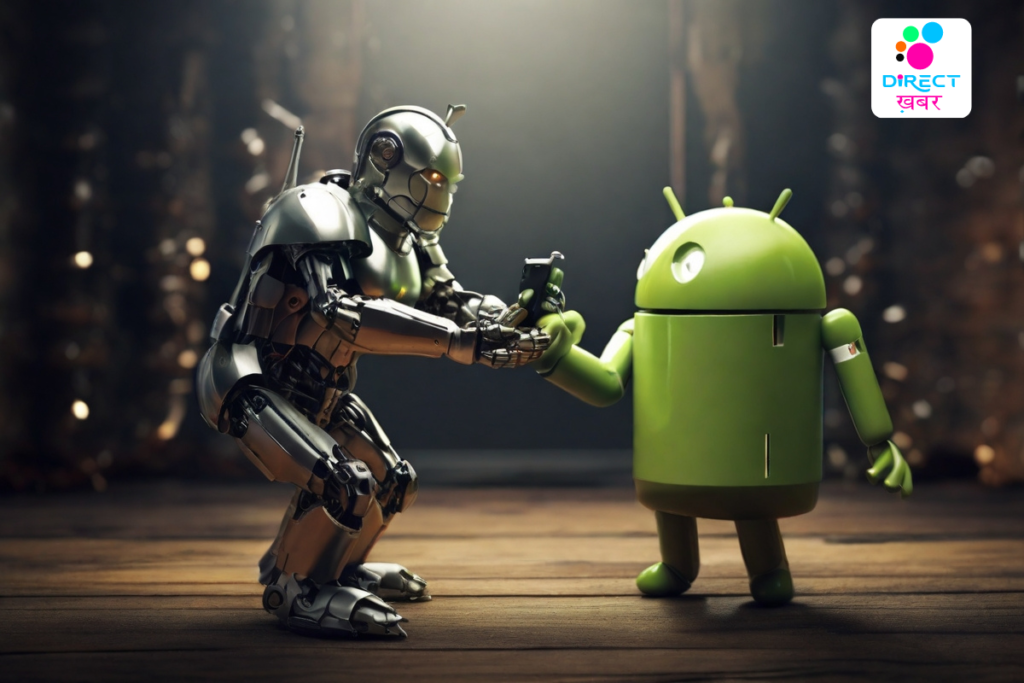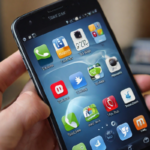Smartphone Showdown: Android vs. iOS – OS Battle
In the ever-evolving landscape of smartphone technology, two operating systems stand out as giants: Android and iOS. With billions of users worldwide, these platforms have redefined how we communicate, work, and entertain ourselves. But which one reigns supreme? In this comprehensive analysis, we’ll delve into the strengths and weaknesses of Android and iOS across various aspects to determine which operating system truly dominates the smartphone market.

Market Share and Global Reach:
Android, developed by Google, boasts the largest market share globally. Its open-source nature allows numerous manufacturers to adopt it, resulting in a wide range of devices catering to diverse user preferences and budgets. In contrast, iOS, exclusive to Apple devices, holds a smaller but fiercely loyal user base, particularly in regions like North America and Europe.
User Interface and Customization:
Android offers unparalleled customization options, allowing users to personalize their devices extensively. From custom launchers to widgets and themes, users have the freedom to tailor their experience to their liking. On the other hand, iOS prioritizes simplicity and consistency, offering a polished and intuitive interface loved by many for its ease of use.
App Ecosystem and Availability:
Both Android’s Google Play Store and iOS’s App Store offer vast libraries of applications catering to almost every need imaginable. However, the Google Play Store hosts a higher quantity of apps due to its open nature, while the App Store is renowned for its stringent quality control, resulting in a curated selection of high-quality applications.
Security and Privacy:
iOS has long been lauded for its robust security measures, including regular security updates and stringent app review processes. Apple’s strict control over hardware and software integration further bolsters its security reputation. While Android has made significant strides in enhancing security over the years, its open nature makes it more susceptible to malware and fragmentation issues, especially on devices running outdated software versions.

Integration with Ecosystem:
Apple’s ecosystem, comprising devices like iPhones, iPads, Macs, and Apple Watches, offers seamless integration and continuity across devices through features like Handoff, AirDrop, and iCloud. This tight integration appeals to users invested in the Apple ecosystem, providing a cohesive user experience. While Android lacks the same level of integration across devices, Google’s ecosystem offers similar features through services like Google Drive, Gmail, and Google Photos.
Customizability vs. Consistency:
The debate between Android’s customizability and iOS’s consistency is ongoing. Android enthusiasts appreciate the flexibility to tweak every aspect of their devices, while iOS users value the consistent user experience across Apple’s product lineup. Ultimately, the choice boils down to personal preference and priorities, with some users prioritizing freedom of customization while others prefer a streamlined and consistent experience.
Hardware Diversity vs. Optimization:
Android’s hardware diversity allows users to choose from a plethora of devices with varying specifications and features. However, this diversity can lead to fragmentation issues, with devices running different versions of Android and experiencing varying levels of optimization. In contrast, iOS’s tight integration with Apple’s hardware results in optimized performance and a smooth user experience across all devices, albeit with fewer hardware options.
Software Updates and Longevity:
One area where iOS shines is in software updates and longevity. Apple consistently delivers timely updates to all supported devices, ensuring users receive the latest features, security patches, and performance improvements. In contrast, Android updates are often delayed or even non-existent for certain devices due to fragmentation and the involvement of manufacturers and carriers in the update process.
In the Android vs. iOS debate, there’s no clear winner – it ultimately comes down to individual preferences, priorities, and ecosystem preferences. Android offers unparalleled customization and hardware diversity, while iOS excels in security, ecosystem integration, and software updates. Whether you prioritize flexibility and customization or value simplicity and consistency, both operating systems have their strengths and weaknesses, ensuring a vibrant and competitive smartphone market for years to come.





